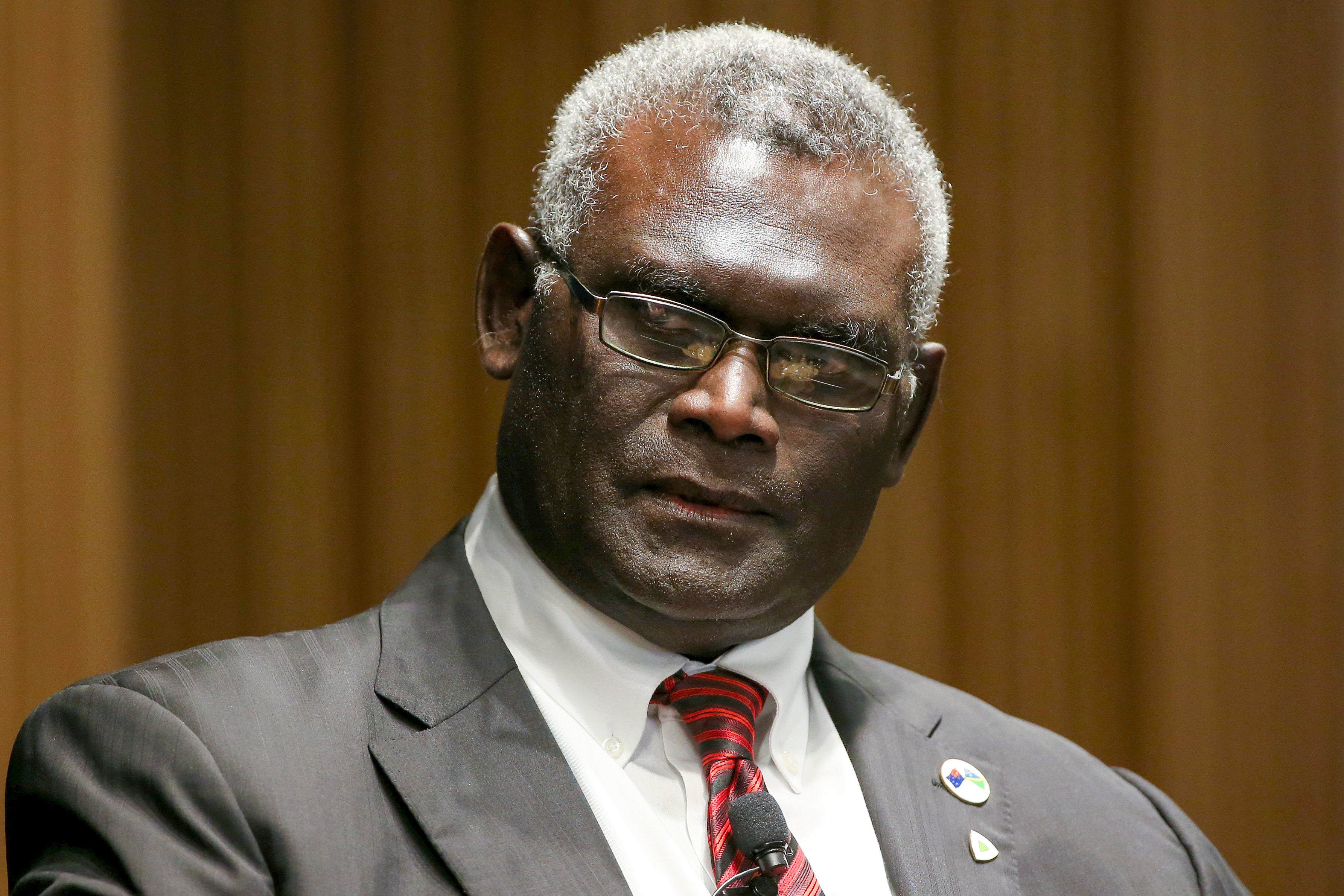Solomon Islands takes tighter control over state broadcaster
The government of the Solomon Islands is tightening its control over the nation’s state-owned broadcaster

Your support helps us to tell the story
From reproductive rights to climate change to Big Tech, The Independent is on the ground when the story is developing. Whether it's investigating the financials of Elon Musk's pro-Trump PAC or producing our latest documentary, 'The A Word', which shines a light on the American women fighting for reproductive rights, we know how important it is to parse out the facts from the messaging.
At such a critical moment in US history, we need reporters on the ground. Your donation allows us to keep sending journalists to speak to both sides of the story.
The Independent is trusted by Americans across the entire political spectrum. And unlike many other quality news outlets, we choose not to lock Americans out of our reporting and analysis with paywalls. We believe quality journalism should be available to everyone, paid for by those who can afford it.
Your support makes all the difference.The government of the Solomon Islands has taken tighter control over the nation's state-owned broadcaster — a move opponents say is squarely aimed at controlling and censoring the news.
The government this week accused the Solomon Islands Broadcasting Corporation of a “lack of ethics and professionalism” and said it was its duty to to “protect our people from lies and misinformation, especially when these very lies and misinformation are propagated by the national broadcaster.”
But in an interview Thursday with The Associated Press, Johnson Honimae, the SIBC's chief executive, said he was proud of the broadcaster's award-winning journalism. He said it was business as usual and there were no government censors vetting stories before they were broadcast, contrary to what was being reported by some news outlets.
The government's move comes at a politically tumultuous time in the Solomon Islands.
There were riots in the capital Honiara last November, followed by a no-confidence vote in Prime Minister Manasseh Sogavare in December, which he survived. Then in April, Sogavare signed a security pact with China that has caused deep alarm in the Pacific and around the world.
The SIBC has been reporting those developments and including the views of Sogavare's opponents.
The broadcaster, which began as the Solomon Islands Broadcasting Service, has been a fixture for 70 years in the Solomon Islands.
Employing about 50 people and operating under the slogan “Voice of the nation," the broadcaster remains the main source of radio and television news for the nation's 700,000 people, and is listened to and watched from the capital to the smallest village.
In late June, the government moved to delist the SIBC as a state-owned enterprise and take more direct control, saying it had failed to make a profit, something which was expected of such enterprises.
Opposition Leader Matthew Wale said Wednesday the delisting was a scheme orchestrated by Sogavare as “a clear attempt to directly control and censor the news content of SIBC.”
“This will hijack well-entrenched principles of law on defamation and freedom-of-speech, thus depriving the public using SIBC to freely express their views, or accessing information on government activities,” Wale said.
Honimae told the AP that the broadcaster had been taking calls from Sogavare's office in recent months.
“They believe we've been running too many stories from the opposition side, causing too much disunity,” Honimae said.
Honimae said the broadcaster and its staff had won several recent journalism awards, including for newsroom of the year and journalist of the year. He said the broadcaster plays the national anthem when broadcasts begin each morning at 6 a.m. and again when they finish at 11 p.m.
“We believe we are a great force for unity and peace in this country,” Honimae said.
Honimae added that the broadcaster needed to “balance our stories more” and leave no opportunity for criticism. He said Sogavare — who is also the broadcasting minister — had said in Parliament that the government wouldn't tamper with the broadcaster's editorial independence.
“There is no censorship at the moment,” Honimae said. “We operate as professional journalists.”